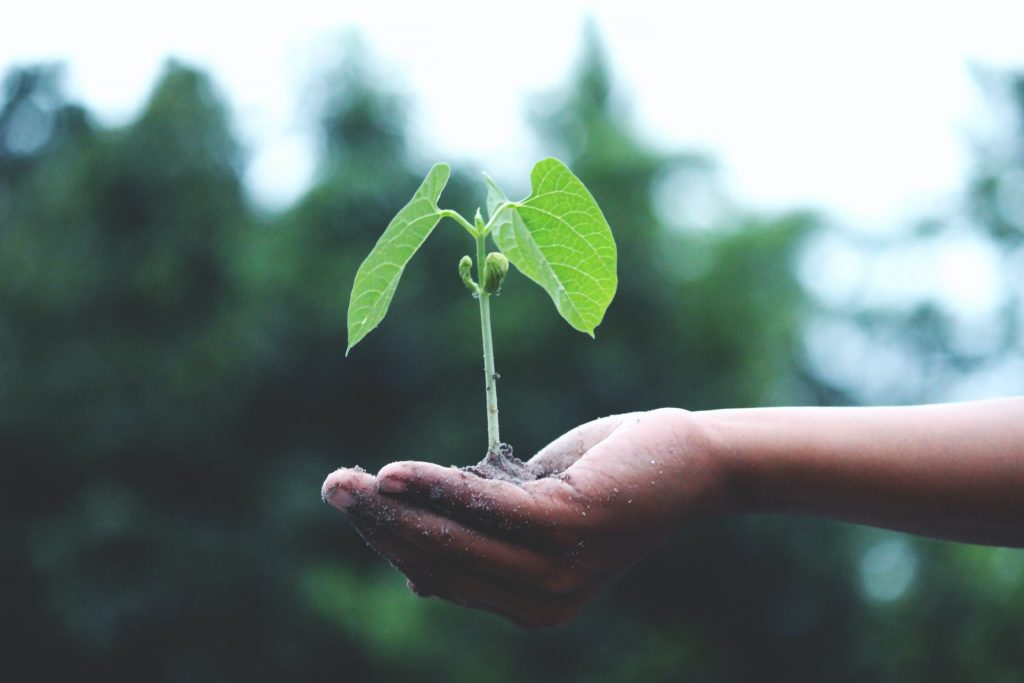The First Year of College:
Procrastination and Academics
By: Ella-Mei Matias, Cal Poly, San Luis Obispo undergraduate intern, supervised by Dr. Hannah Roberts
“Procrastination makes easy things hard
and hard things harder.”
-Mason Cooley
As we near end of summer, many incoming freshmen are preparing for the huge life change of entering college. Among many other things, this often includes orientation events, moving away from home, entering a new environment, and facing new challenges. Understandably, this time can be stressful and may come with anxiety. One common worry that incoming freshmen have is about adapting to a new academic environment. Colleges and universities are typically perceived to be more rigorous than previous high school experiences. Fortunately, there are some key habits and mindsets you can build that can help ease this transition and help you adapt to college academics with ease.
Procrastination
One behavior to be aware of is procrastination. Many of us tend to procrastinate – a study found that 96.1% of undergraduate students have moderate to severe levels of academic procrastination (Ghasempour, 2024). It happens to the best of us, and often times, it’s happening subconsciously. Procrastination can seem difficult to combat, but understanding why we procrastinate can help us to act more mindfully. In fact, anxiety and stress are significant predictors of academic procrastination (Rezaei-Gazki, 2024). Add in the stress of this time of big life transitions, and incoming college students are often prone to procrastination (Prenderghast, 2023). Changing life circumstances, alongside these new academic standards and expectations leaves many students finding themselves underprepared or struggling to keep up with their assignments — which can further perpetuate feelings of stress.
When stressed, many of us might want to avoid the very thing that causes us stress (Lieberman, 2019). In fact, procrastination often stems from our negative emotions about doing a task and results when we engage in other activities to relieve the stress we have about completing the task (Rezaei-Gazki, 2024). Essentially, the act of procrastination is us prioritizing our short-term happiness over long-term results (Lieberman, 2019). Procrastination can lead to a variety of consequences, such as being negatively correlated with assignment grades, quiz scores, final course grades, and overall GPA (Rezaei-Gazki, 2024).
Interestingly, although many of us only view procrastination as hurting our academic performance, it has been found that habitual procrastination can also lead to emotional and mental consequences. In fact, one study found that procrastination can lead to negative emotional and cognitive repercussions, such as decreased self-confidence, decreased self-esteem, and raised anxiety levels (Ghasempour, 2024). Furthermore, as procrastination affects our performance on tasks, it can lead to an altered perception of our ability to complete a task (Shah, 2024).
As with many challenges in life, being prepared is a great way to approach your new academic environment. Here are some ways you can avoid procrastination and prepare for success in your newfound college-level academics:
Mindfulness & Mindset
Because procrastination is exacerbated by negative emotion regulation, there are some ways we can mindfully decrease this habit. One key way to decrease our procrastination is by altering the way we emotionally relate to the tasks we’re faced with. By reframing the way that we perceive a task and our emotions surrounding that task, we can feel more positive and hopeful, and talk back to our originally negative thoughts about completing a task that cause us to procrastinate (Lieberman, 2019). Instead of regarding a task as daunting and something we would rather avoid, we can focus on the positives of the task and find an intrinsic motivation to accomplish. For example, “finishing this paper will help me be better at my future job” or “I will feel good about myself if I finish this paper on time” or ” I want to do well in this class, so I will finish this paper”. By creating more positive emotions about the things we need to do, we can avoid the negative thoughts relating to that task, and therefore, reduce our procrastination.
Furthermore, because procrastination stems from prioritizing our short-term fulfillment over long-term benefit, it helps to focus on our priorities. For example, when faced with an un-fun task, think about how good it will feel to finish the task, instead of focusing on how long it will take or how hard it will be (Codina, 2024). It also helps to think about the relationship between our future aspirations and outcomes and how they relate to our well-being or life goals (Codina, 2024). In other words, by reframing our mindset to associate our current mood and goals with the things we want in the future, we can bridge the gap between long-term and short-term results, decreasing our procrastination behavior.
There are personal mindset factors that can make us more vulnerable to procrastination. Interestingly, research shows that self-esteem and procrastination have a bi-directional relationship. As mentioned earlier, procrastinating can lead to a lowered self-esteem, but self-esteem also determines if we procrastinate. Specifically, having a low-self esteem can lead to an increased fear of failure – which can increase chances of procrastinating (Ghasempour, 2024). Having a strong feeling of competence, autonomy, and self-regulation helps to create a higher quality of motivation, and helps to limit and reduce the emotions that lead to procrastination (Codina, 2024). By taking time to be mindful and kind to ourselves with our self-talk, we can nurture our self-concept and increase our belief that we can complete the task, which improves our motivation.
Reframing our thoughts might seem easier said than done, but with practice, mindful reflection, and identifying internal motivators, you can reduce procrastination.
Organization
Procrastination can make it more difficult to stay on top of your academic demands, but these problems can be worsened without organization. During a time where you are juggling many unique classes, each with their own assignments and projects, organization is key to academic success. Everyone has a different method of organization that works for them. For example, some like to plan out their weeks, schedules, and assignments through an app, or by using a physical planner, or by keeping a to-do list. You can also ensure organization by setting weekly — or daily — goals for yourself, and managing your time. In order to be organized, you must know what to expect in your classes.
One key part of knowing what to expect in your classes is knowing when assignments are due, and planning accordingly. Personally, I was nervous about keeping track of all my different assignments for my various classes, so at the beginning of each class, I made it a point to look at the syllabus or go to office hours to ask my professor what the assignment course load would look like. For example, some classes may assign a smaller-weighted weekly assignment, and others may only assign three larger-scale projects for the whole quarter. Knowing what assignments are needed in each class for the term and how much work you are given can help you allot your time accordingly.
It can also be tricky to keep track of all sorts of different assignments for different classes. Many classes will often have a set day of the week when work is expected to be due, which can make it easier to plan your homework schedule. For example, if I knew that class A had two assignments due, one on Monday, and one on Wednesday, I would do those assignments on Sunday and Tuesday, respectively. And if I knew that class B has assignments due on Tuesday and Thursday, I would do that class’ assignments on Monday and Wednesday. This can vary with schedules and classes, but essentially, by learning the pattern of assignments in each class, you can plan your weeks in advance and create study habits based on which assignments you know to work on each day.
Scheduling That Works for You
Knowing what class work you can expect is helpful, but it can be tricky finding time to study amongst all the social activities, life adjustments, and classes during the busy and exciting time of college. Another way to to reliably get work done is by allotting time in your schedule so that you can do homework. By making your schedule fit with your life and setting aside designated homework times, you can seamlessly implement time for academics, no matter how busy you are.
There are a few key things you should keep in mind when considering what your homework schedule should look like. As I mentioned above, it helps to create a schedule based on what assignments are due on which days — but also consider:
- Do you work better in the morning or in the evening?
- Do you work better in multiple short sessions of work or fewer long sessions?
- What locations you find yourself the most productive in?
- Do you have any conflicting social plans coming up?
It is also important to look at your existing schedule and see what times you could set aside for homework that would be most compatible. For example, if I have a two hour break between two of my classes, I may decide to schedule that break to do some homework. Similarly, if my classes start later on a specific day, I may do homework on those mornings. The best way to stay on top of your academic load is by finding times to naturally incorporate work-time into your schedule that works best with your existing commitments, without trying to squeeze it in last-minute.
A time of such immense life changes can be daunting, especially when it comes to the changes in academic rigor that you’ll be facing. Ask for help if you find yourself needing it. Don’t let procrastination trip you up during your first semester of university (or anytime in your academic career)! Be gentle with yourself and remember that you are learning and adapting, and in time, you will find the ways that work best for you!
Feel like you need support as a college student or you’re ready to start therapy in California today? Schedule a session with one of our therapists! You can schedule online here!
We hope you enjoyed this blog post! Have more topics you’d like us to blog about? Contact us and we’ll be sure to include your topic in a future post.
References
Codina, N., Castillo, I., Pestana, J. V., & Valenzuela, R. (2024). Time perspectives and procrastination in university students: exploring the moderating role of basic psychological need satisfaction. BMC Psychology, 12(1), NA. http://dx.doi.org.calpoly.idm.oclc.org/10.1186/s40359-023-01494-8
Ghasempour, S., Babaei, A., Nouri, S., Basirinezhad, M. H., & Abbasi, A. (2024). Relationship between academic procrastination, self-esteem, and moral intelligence among medical sciences students: a cross-sectional study. BMC Psychology, 12(1), NA. http://dx.doi.org.calpoly.idm.oclc.org/10.1186/s40359-024-01731-8
Lieberman, C. (2019, March 25). Why You Procrastinate (It Has Nothing to Do With Self-Control). The New York Times. https://www.nytimes.com/2019/03/25/smarter-living/why-you-procrastinate-it-has-nothing-to-do-with-self-control.html
Prendergast, C., & Miller, J. (2023, August 30). Moving Away To College? Here’s How To Cope With Anxiety About Leaving Home. Forbes Health. https://www.forbes.com/health/mind/moving-anxiety-college/
Rezaei-Gazki, P., Ilaghi, M., & Masoumian, N. (2024). The triangle of anxiety, perfectionism, and academic procrastination: exploring the correlates in medical and dental students. BMC Medical Education, 24(1), NA. http://dx.doi.org.calpoly.idm.oclc.org/10.1186/s12909-024-05145-3
Shah, H., Ahmed, S., Raza, S. M., Irshad, M., Fahim, H., & Usman, T. (2024). Relationship between academic procrastination and self-efficacy amongst dental undergraduate students at a public university in Karachi, Pakistan. Journal of Pakistan Medical Association, 74(4), 719. https://link-gale-com.calpoly.idm.oclc.org/apps/doc/A788735286/AONE?u=calpolyw_csu&sid=bookmark-AONE&xid=670a6b27


